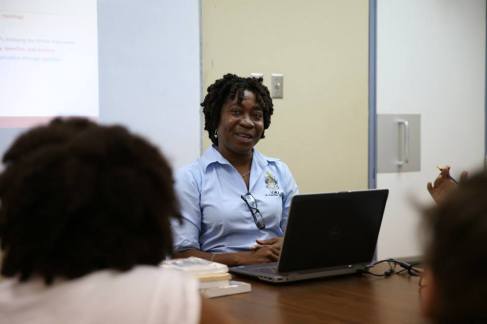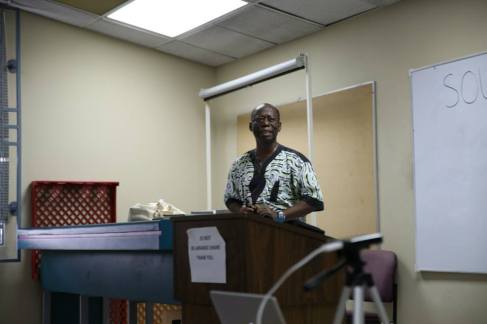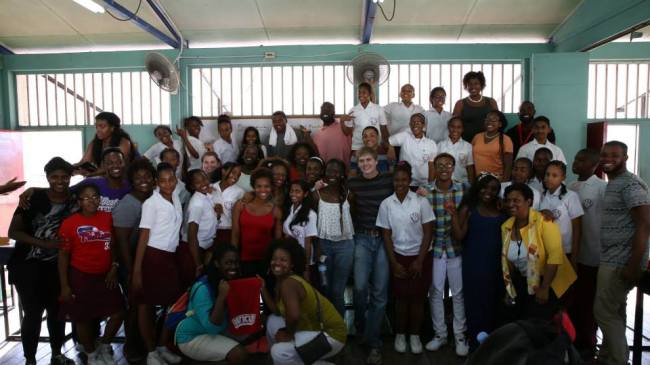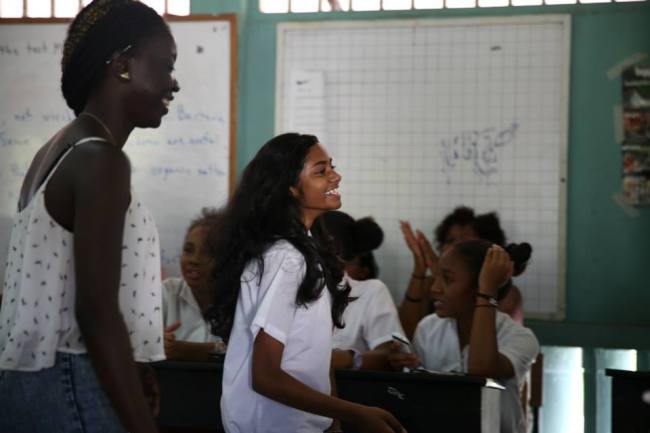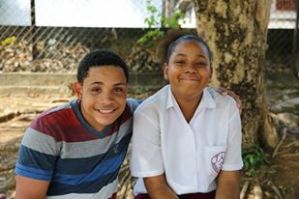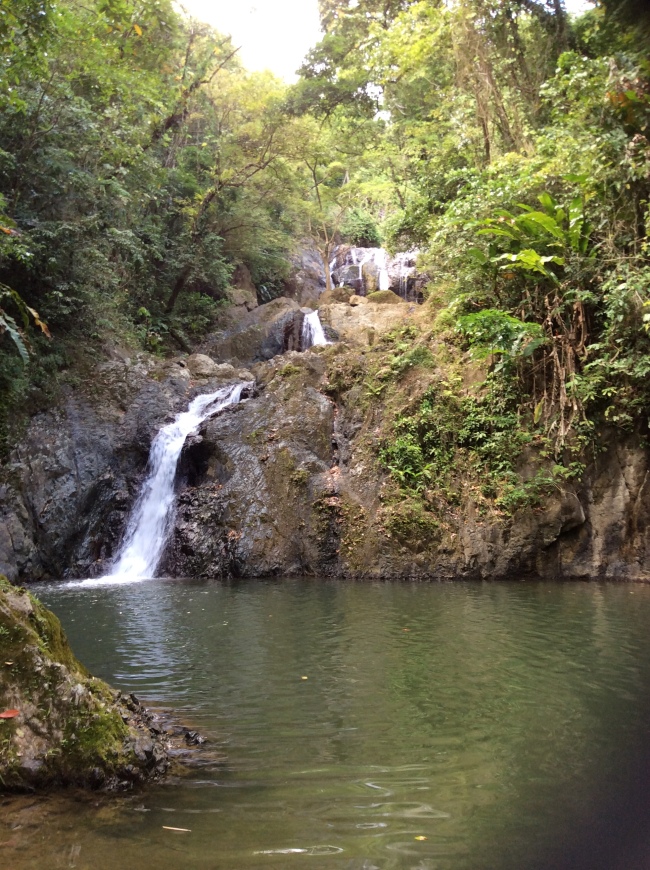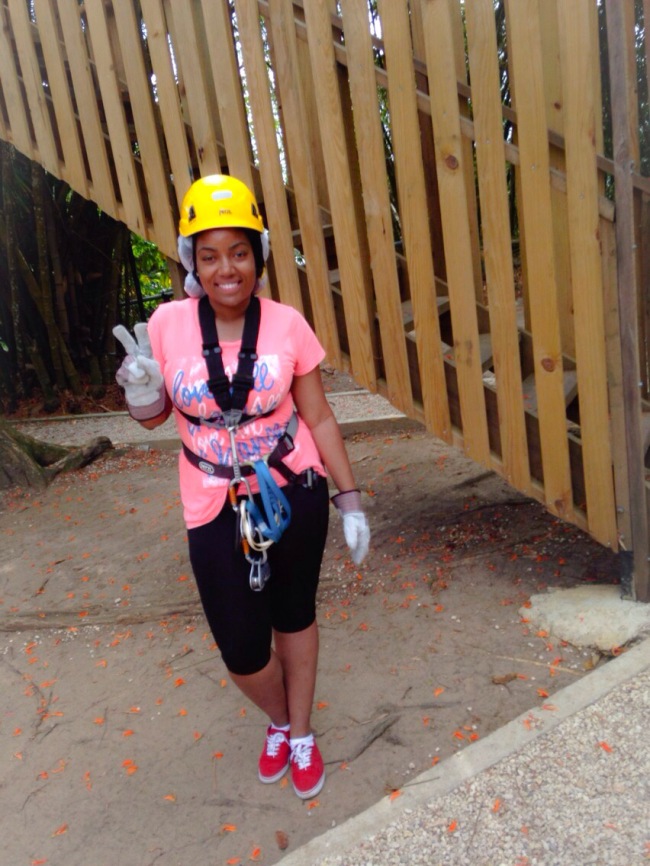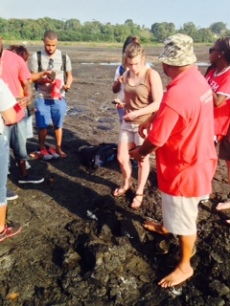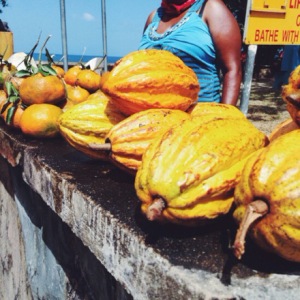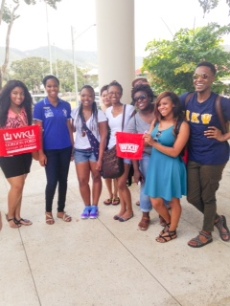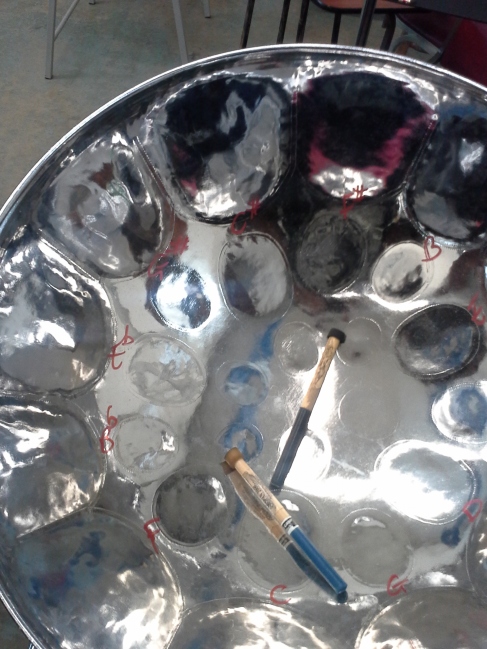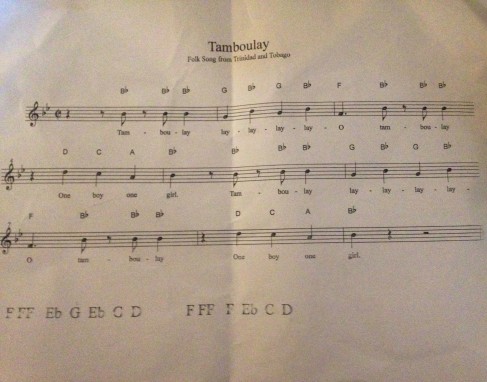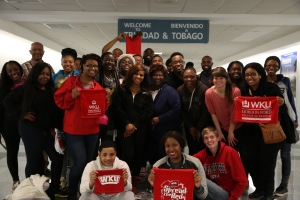Our study abroad experience in Trinidad and Tobago was very enriching because we attended lectures at the University of West Indies, St. Augustine Campus. This experience allowed us to be students at another campus in another country. Each lecture was presented with culture and history from Caribbean perspective that enhanced our academic knowledge the social, political, and cultural dynamics in regards to people of African descent.
The first lecture we attended focused on the Indian Diaspora here in Trinidad and this lecture was presented by Dr. Sherry-Ann Singh. In this lecture we learned more about how the Indian population was established and how they adapted to society. The Indians from East India were mistreated by European settlers. Indians began their life in the society of Trinidad as agricultural laborers under a contract to work on sugar and, later coca plantations for a specified period usually within five years for males and three for females.
The second lecture we attended presented an intriguing concept which was British Abolitionism this was presented by Dr. Geilen Matthews. We really enjoyed this lecture because she spoke with confidence and wisdom. In this lecture we learned more about why abolitionism served as way for the British to enhance their economic and moral interests. One of the most notable leaders of the abolitionism in Britain was Granville Sharpe he was given the title of being “The Grandfather of British Abolition.” His life and works were very intriguing because Granville Sharpe used all of his financial and political resources to help African slaves gain their civil rights in English society in addition to fighting legal battles for African slaves he provided the slaves with health care assistance from his brother who has a prominent doctor.
The third lecture we attended was presented by Dr. Claudius Fergus the content was used from his book Revolutionary Emancipation which was one of our readings for this course. Dr. Fergus posed two important arguments which were the 1760 rebellion in Jamaica, which was Tacky’s War, one of the largest and most destructive rebellion’s of enslaved Africans. Another important revolution that occurred was the Haitian Revolution which provided rationale for abolition and reform of the colonial system in the Caribbean. Dr. Fergus suggested that the British were afraid of a revolution occurring in Trinidad therefore reform was implemented. One of the strongest sentiments we learned in this lecture was that slavery in the Caribbean began with resistance, resistance was a natural reaction. In addition to resistance violence was revolutionary and revolution implies violence as a tool of change.
